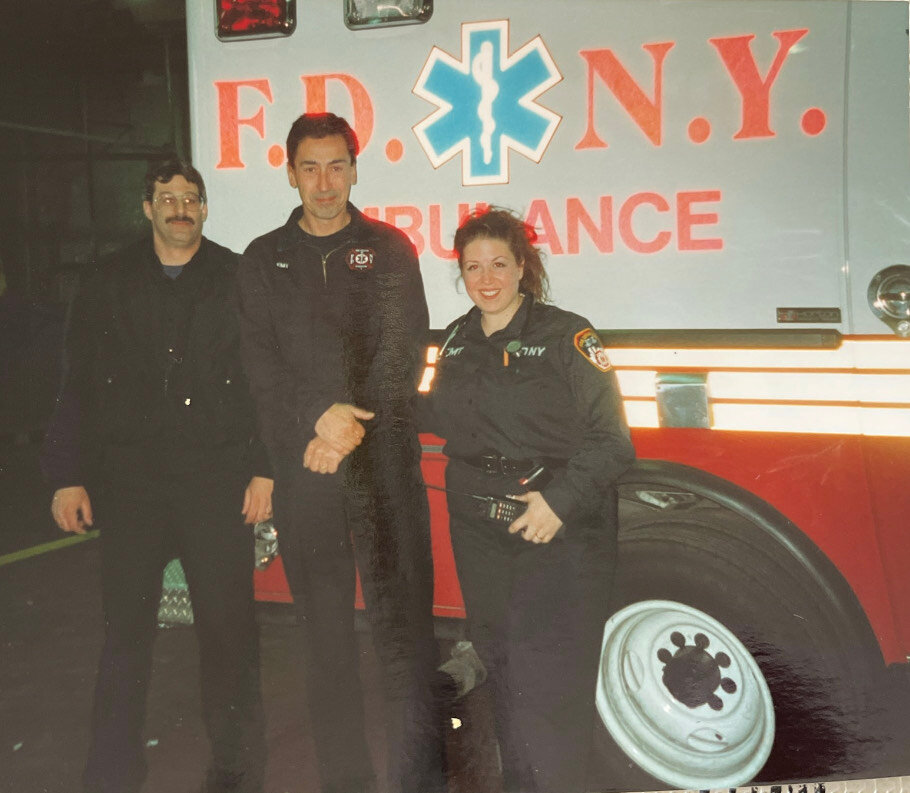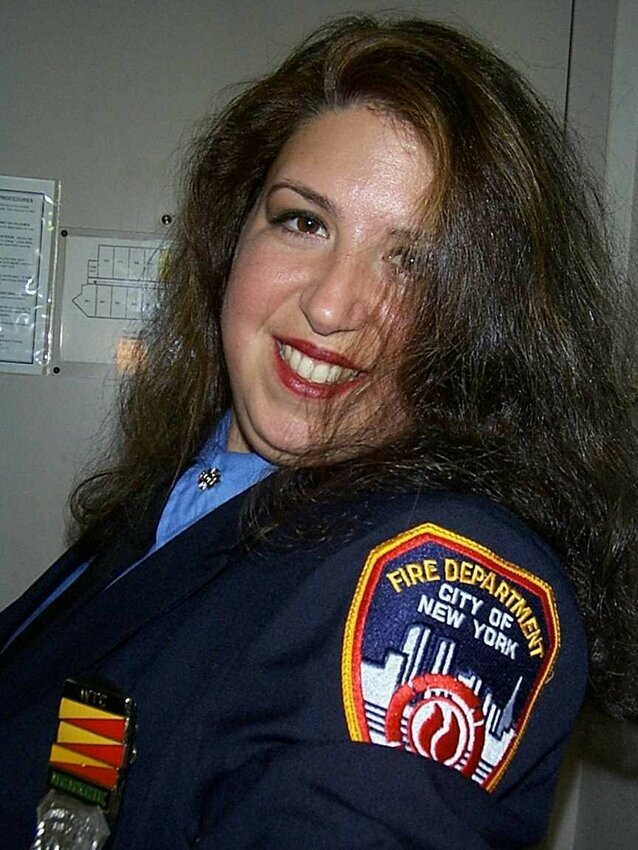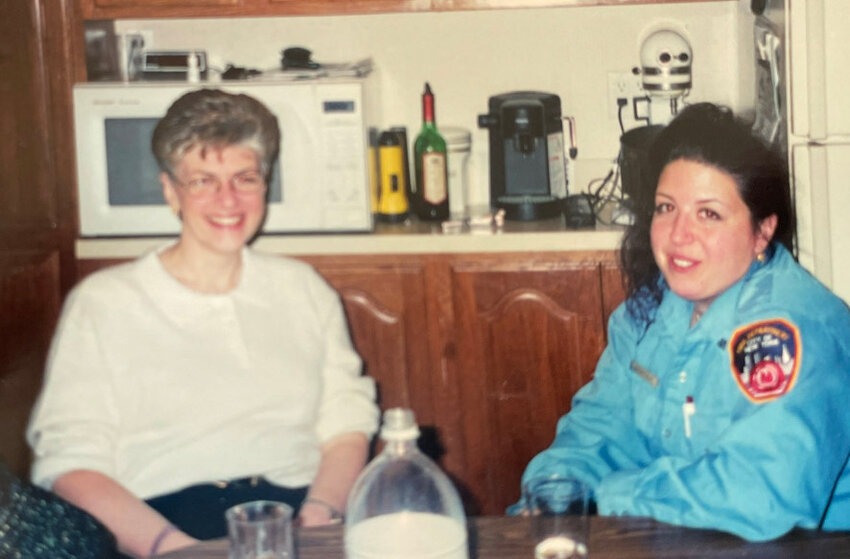Assured and intent, Pizzitola battles the city and a few unions too
On behalf of promises made to 250,000 city retirees
Marianne Pizzitola has run a bakery out of her home kitchen, filling orders for custom-baked cakes, cookies and breads. She has also single-handedly rebuilt the motor on her 1971 white VW bus. That effort took two years, but the thing’s been purring ever since.
Her most recent endeavor, as anyone who follows municipal goings-on surely knows, has been to advocate — and battle, and argue, and cajole — on behalf of city retirees. And she and her allies have so far prevailed, beating back attempts by successive mayoral administrations to shift the city’s roughly 250,000 retirees to a private, for-profit health plan against their wishes by arguing that the city’s cost-saving move would break promises made decades ago.
“I have a very strong sense of right and wrong, and I sense that what they’re doing is wrong,” Pizzitola said during a long conversation a few weeks ago.
Up to now, judges have agreed with Pizzitola and her colleagues, concluding that city officials had in fact dangled the assurance of lifelong government-administered Medicare and city-paid supplemental coverage as an “essential recruiting and retention tool,” as a former city official put it in an affidavit.
Both sides now await a decision from a State Supreme Court Appellate Division panel that last month considered the city’s appeal of a court decision blocking the proposed switch.
Pandemic start
Pizzitola’s enterprise began on Aug. 13, 2021, a Friday, the city still under a Covid cloud, when 17 of the 40 people she had invited to hone opposition to the city’s proposed plan joined a Zoom call. Five would volunteer to mount a challenge to the city’s proposal. At the conclusion of the two-hour call, the New York City Organization of Public Service Retirees was launched, and Pizzitola was chosen to lead it as president.
“In a few hours, we had a name, a mission, an attorney, a bank. And then that weekend, I started a PayPal, a YouTube, a Facebook, and I drafted our first website,” she said.
The organization, funded by donations, most of $25, has since grown to include a board of directors and an administrative board along with advisors and volunteers, some of them former city and union officials.
Since that August day, over hundreds of emails, at rallies, on YouTube, Threads, Twitter and TikTok, in strategy sessions with attorneys, at gatherings with retirees, and during court hearings, Pizzitola has parlayed her passion, belief and deep knowledge of sometimes opaque policy points and obscure legislation to, so far, preserve what she adamantly believes the retirees, herself among them, are due.
Pizzitola, 55, became an expert in all things pension- and benefit-related while working as an FDNY emergency medical technician starting in the mid-1990s and into the early 2000s, during which she served a tenure as a delegate with Local 2507, the District Council 37 local that represents EMTs and paramedics.
She helped her colleagues in that union and also those in Local 3621, the officer’s union, navigate the arcana of their pension and benefit plans, as well as their disability and or injury claims, often during sessions at the Elk’s Club on Queens Boulevard, which the local rented for that purpose.
She did so, she said, because DC 37 officials charged with informing their members on those matters were not. “And people were suffering because of that and that angered me because now you have a person who's trying to retire on disability and you have a narrow window to do that,” Pizzitola said.
1/2 union household
Pizzitola spent her childhood first in Queens and in Brooklyn before her parents moved her and her twin sisters, a year younger, to Long Island. She was a good student, particularly adept at music and science, and graduated from Longwood High School in Middle Island.
Her mother, a teacher, was a chapter leader PS 165 in Queens. But her father, a construction project manager, was anti-union, which confounded his wife and daughter.
“And we would always turn into fights between me and my mom and my father. We saw the abuses of management from our perspective and knew that you needed good, strong unions to be able to protect workers’ rights and safety and benefits and whatever. So there were a lot of differences of opinion there,” Pizzitola said. “My mom and I were on the same wavelength.”
After graduating and through her early 20s, Pizzitola prepared for a future in restaurants. Her grandparents — her mother's family is from the Italian port city of Bari, and her father’s hails from Sicily — owned and ran eateries and bars along Queens Boulevard. “I wanted to continue my grandfather’s legacy,” Pizzitola said.
But by the time she graduated with an associate’s degree in restaurant and hotel management, from Johnson and Wales in Providence, Rhode Island, the family had sold its last establishment.
Pizzitola started working in hotels, first interning as a purchasing manager with the Marriott chain before moving closer to the culinary team. But it was during her stint as a sales manager at the Omni Berkshire on East 52nd Street in Manhattan in the early 1990s that she began a slow but steady conversion to an EMT.
Serendipity — and someone’s misfortune — got her into the field. Pizzitola was having drinks at a Bell Boulevard bar in Queens’ Bayside neighborhood near her home when a person was hit by a car. “And I ended up tending to that person and I was like, wow, this is really cool,” she said.
Making a difference
Pizzitola
was making a good living at the Omni, and she joined the Bayside
Volunteer Ambulance Corps to, she said, “pay it forward.” But the
economy went into a tailspin soon after, and she lost her hotel job. “I
just ended up hanging out at Bayside Volunteer Ambulance all the time.
And then when that happened that made me want to do this,” she said of
losing her job and joining an ambulance crew full time. Needing to pay
her mortgage on her recently purchased Bayside condo, Pizzitola, now in
her mid-20s, landed a paid position as an EMT with St. John’s Queens
Hospital.
Enticed by the prospect of a pension and a lifetime of quality health care, she eventually took the city’s EMT exam. She was hired in 1996, and initially based with Bronx EMS Station 23 Jacobi, now known as Battalion 20.
Although she thought she would eventually return to a hotel job once the economy regained strength, the FDNY would prove too compelling for her to leave. “I liked it too much. It was uniforms and sirens and lights, and every day was something different,” she said. “And I wasn't wearing high heels and stockings.”
But there was a not-insignificant tradeoff: “Privates make more than the city,” she said. “I took a $10,000 pay cut to work for the city,” which, accounting for inflation, would be about twice that much today.
Still, she was making a difference. “It was exciting,” said Pizzitola, who was briefly married around this time, but she and her husband were not a match and divorced in 1999. “Our job was going into chaos and making organization out of it and having an impact on people's lives.”
Every day brought some new adventure, she said, the job reflecting all of the city’s character. “You're going to see your friends and your peers, but you're going out into the city, and every day you will meet other people, and they need you to help them solve whatever crisis that they're having. You meet people at their worst, and you meet people at their best.”
A few years later, on a job with EMS Station 49 in Astoria, she stepped into a pothole while transporting a patient to her rig and tore the ligaments in her right ankle. The fallout from that injury, as well as respiratory difficulties from working the bucket brigade at the World Trade Center pile, would eventually convince her and the FDNY that she could no longer be out on the job. She left the department in 2004.
“I was really frustrated with that because I loved what I did, really genuinely loved. My father was always of the type that work isn't something you love. Work is something you have to do to make a living and raise a family. And I never understood that mindset,” she said.
‘I see my grandpa’
Pizzitola spends part of the year in Georgia’s warmer weather to alleviate her health issues. When she’s not parsing through the minutiae of municipal health plans and associated statutes, she tends to her garden and dotes on her two rescue dogs, Jewels, a pomeranian eskimo, and Sugar, an eskimo.
But you’re very likely to find her back in the city when the Medicare issue crops back up, as it has every few weeks for the last three years or so. She’ll also make the trip to rally support for former municipal workers generally, as she did earlier last month on behalf of the DC 37 Retirees Association, which has been put into administratorship by its parent union, ostensibly for its failure to file tax returns for several year, but also for what some believe was the the group’s support, financial and otherwise, of Pizzitola’s effort.
“I don't sleep. I know. My attorney yells at me all the time,” she said. “But this mission is a constant. And being first responders, being EMS people, we take care of everybody else before we take care of ourselves. So my team is starting to feel the brunt of that.”
Still, Pizzitola added, the mission has forged them into comrades with a common cause. “I have a new family because of this and I would never trade that for anything in the world,” she said.
The high-profile nature of Pizzitola’s endeavor has, if by default, cast her into something of a fixer for and a counselor to the retirees. “You kind of become that liaison in between to help them figure all of this out,” she said of the Medicare imbroglio. “So you want to help them because they're confused and they're scared. They're worried they're going to lose a coverage or welfare-fund benefit that they've had forever. They don't know what to do. They don't understand it.”
And just as much as city officials, Pizzitola and her organization are battling big players among the city’s public-sector unions, among them DC 37 and the United Federation of Teachers, which along with a majority of the Municipal Labor Council, the umbrella organization of municipal unions, sanctioned the planned switch to Medicare Advantage.
Union officials, Pizzitola has argued, on occasion with disdain but nearly always with frustration, are indifferent to the retirees. And few current workers can fully comprehend how different their lives will be in a few decades. “They're not seeing themselves as older, having health issues, trouble getting around, loss of a spouse, disabled spouse, disabled children that they still have to take care of even though they're 70 and 80 and 90 years old and half the income that they are making today,” Pizzitola said, her voice rising with frustration.
Earlier in the day, she had discussed the potential fallout from a switch to Medicare Advantage with about 80 retired FDNY firefighters. “How do you look at these gentlemen, knowing their service to the city? And you're OK with stripping away their health care?… You look at them, I see my grandpa,” Pizzitola said. “This is why I take this personally.”
We depend on the support of readers like you to help keep our publication strong and independent. Join us.



No comments:
Post a Comment